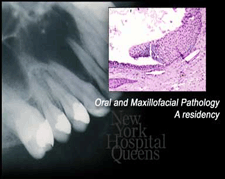المقالات
Cellulitis

Cellulitis is a severe, rapidly-spreading bacterial infection that results from an uncontrolled infection in the gums, tooth pulp or root end (apex). It normally starts close to the source of the original infection, and quickly spreads to involve large areas of the face and neck. It is characterized by swelling, redness, heat and pain. Symptoms of cellulitis include a painful, tender swelling that increases in size as the infection spreads, and a stretched, shiny appearance to the skin. Overall, you may have a fever, fatigue and muscle aches, swollen lymph glands in the neck, nausea and vomiting, joint stiffness, and hair loss at the affected area.
Cellulitis can be difficult to treat, and may require hospitalization. The focus of the treatment is to stop the infection's spread, establish drainage, and prevent the development of complications. It is important that we identify the type of bacteria causing the infection. After this has been done, we can usually cure cellulitis after 7-10 days of treatment, except in those with suppressed immune systems.
* We will prescribe antibiotics to control the infection; intravenous antibiotics may be required if your infection is severe.
* Pain medication may also be prescribed, if over-the-counter pain medication does not offer adequate relief.
* To minimize the swelling associated with the infection, elevate the affected area.
* Avoid strenuous activity; rest until symptoms subside. If allowed to progress, cellulitis can be life-threatening. Progression of the infection can result in death of the tissues (gangrene), an infection throughout the body (sepsis), inflammation of the lymph vessels (lymphangitis), or meningitis.
